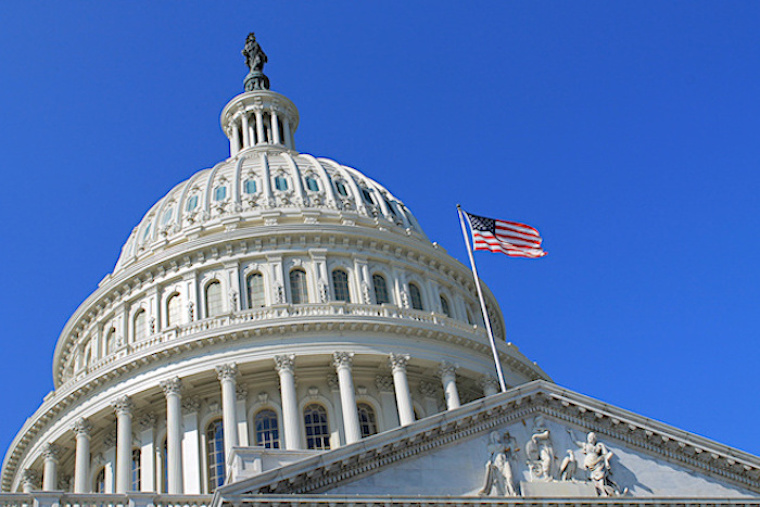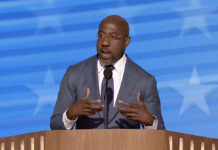
WASHINGTON — Senate Republicans unveiled their latest coronavirus relief proposal Tuesday but were met with swift objections from Democrats.
The GOP plan failed to include direct aid to cities and states, a priority for Democrats, or rental relief or nutrition assistance, and it appeared it wouldn’t go far enough to resolve a monthslong stalemate over providing additional emergency aid to Americans. The Senate plans a vote later this week.
The $500 billion GOP package includes enhanced unemployment benefits, another round of federal small business loans, and billions of dollars to help schools and universities reopen safely.
It would also boost COVID-19 testing, contact tracing, treatments and vaccine development; and help the U.S. Postal Service accommodate an expected surge of mail-in ballots this fall.
The package would also give families two years of tax credits for contributions to “scholarship granting organizations” — which could be used for private school tuition and homeschooling expenses. A Republican summary gave credit to Republican Sens. Lamar Alexander of Tennessee, Tim Scott of South Carolina, and Ted Cruz of Texas for insisting on including a version of school choice in the bill.
And the measure would provide legal protections as organizations reopen amid the pandemic — a must-do for Senate Majority Leader Mitch McConnell (R-Ky.).
It would be offset by claiming spent and unallocated funds in earlier coronavirus relief packages.
“We want to agree where bipartisan agreement is possible, get more help out the door and then keep arguing over the rest later,” McConnell said on the Senate floor Tuesday.
But House Speaker Nancy Pelosi (D-Calif.) and Senate Minority Leader Chuck Schumer (D-N.Y.) said the bill “doesn’t come close” to addressing the twin public health and economic crises facing the country and said it was designed to give the GOP political cover as they head into the fall elections.
“This emaciated bill is only intended to help vulnerable Republican senators by giving them a ‘check the box’ vote to maintain the appearance that they’re not held hostage by their extreme right-wing that doesn’t want to spend a nickel to help people,” they said in a joint statement.
McConnell responded on the Senate floor Tuesday afternoon that Democrats won’t negotiate in good faith and are holding out for a “Goldilocks” bill that meets all of their wishes.
“They’ve complained about every single thing we’ve put forward,” he said. “But they’ve produced nothing of their own with any chance of becoming law.”
The proposal would cost about half as much as a $1 trillion package Republicans introduced earlier this summer that went nowhere.
Democrats introduced their own $3 trillion package, which passed the U.S. House in May but met stiff resistance in the Senate. In negotiations, Democrats offered to lower their plan by roughly $2 trillion, but Republicans in Congress and the Trump administration didn’t bite.
In their package, Democrats included nearly $1 trillion for city, state, local and tribal governments, some of which are facing massive revenue shortfalls as a result of the pandemic.
Georgia’s budget shortfall is not a severe as many other states so far. Just the same, Republican House Speaker David Ralston sent a letter earlier this summer to Georgia Republican U.S. Sen. David Perdue and Sen. Kelly Loeffler asking for another $500 billion in aid for “flexible general fund assistance.”
Tuesday’s GOP bill would:
- Give states the option to continue providing $300 a week in enhanced unemployment benefits to eligible Americans through Dec. 27.
- Provide $105 billion to help schools safely provide in-person education and continued learning of all students in elementary and secondary education and higher education.
- Allow parents of students at public, private, and religious schools or who home school to use 529 tax plan funds for educational expenses.
- Provide $15 billion in child care grants, including direct support for child care providers and authorizes short-term assistance to help child care providers reopen.
- Provide $31 billion for vaccine, therapeutic and diagnostic development; vaccine distribution; and medical supplies and $16 billion for testing, contact tracing and surveillance in states.
- Set aside about $258 billion for a second round of loans to small businesses. Applicants would be required to show revenue loss and retain business documents.
- Provide liability limitations for personal injury claims and medical malpractice claims related to COVID-19. Protections would apply to hospitals and health care workers, small and large businesses, schools, colleges and universities, religious, philanthropic and other nonprofit institutions, and local government agencies.
- Forgive a $10 billion federal loan to the U.S. Postal Service that was approved earlier this year. The loan is accessible only if the agency’s cash balance drops to $8 billion and includes a report to Congress on how COVID has increased expenses.
- Authorize improvements and supports for sustained on-shore manufacturing surge capacity and capabilities to produce vaccines and therapeutics to respond to COVID-19 and other public health threats. It would also encourage companies that produce medical products to increase manufacturing and stockpiling capacity.
- Increase the amount taxpayers can deduct from their tax bill for charitable contributions.
- Extend the deadline to Sept. 30, 2021 for spending already appropriated money, but wouldn’t provide additional flexibility or funding to cities and states.
- Provide $20 billion in additional farm assistance and $500 million to the fishing industry.







